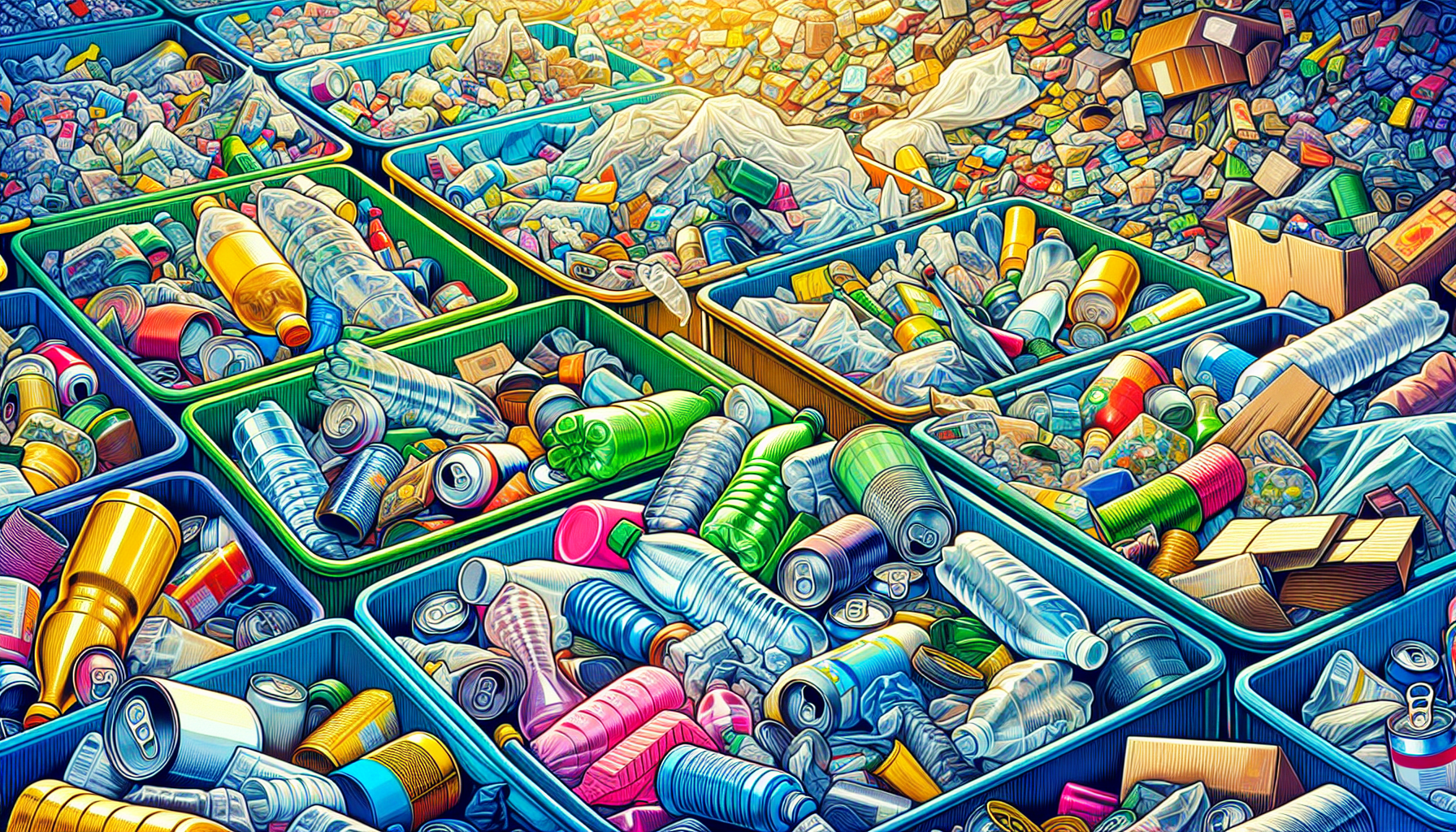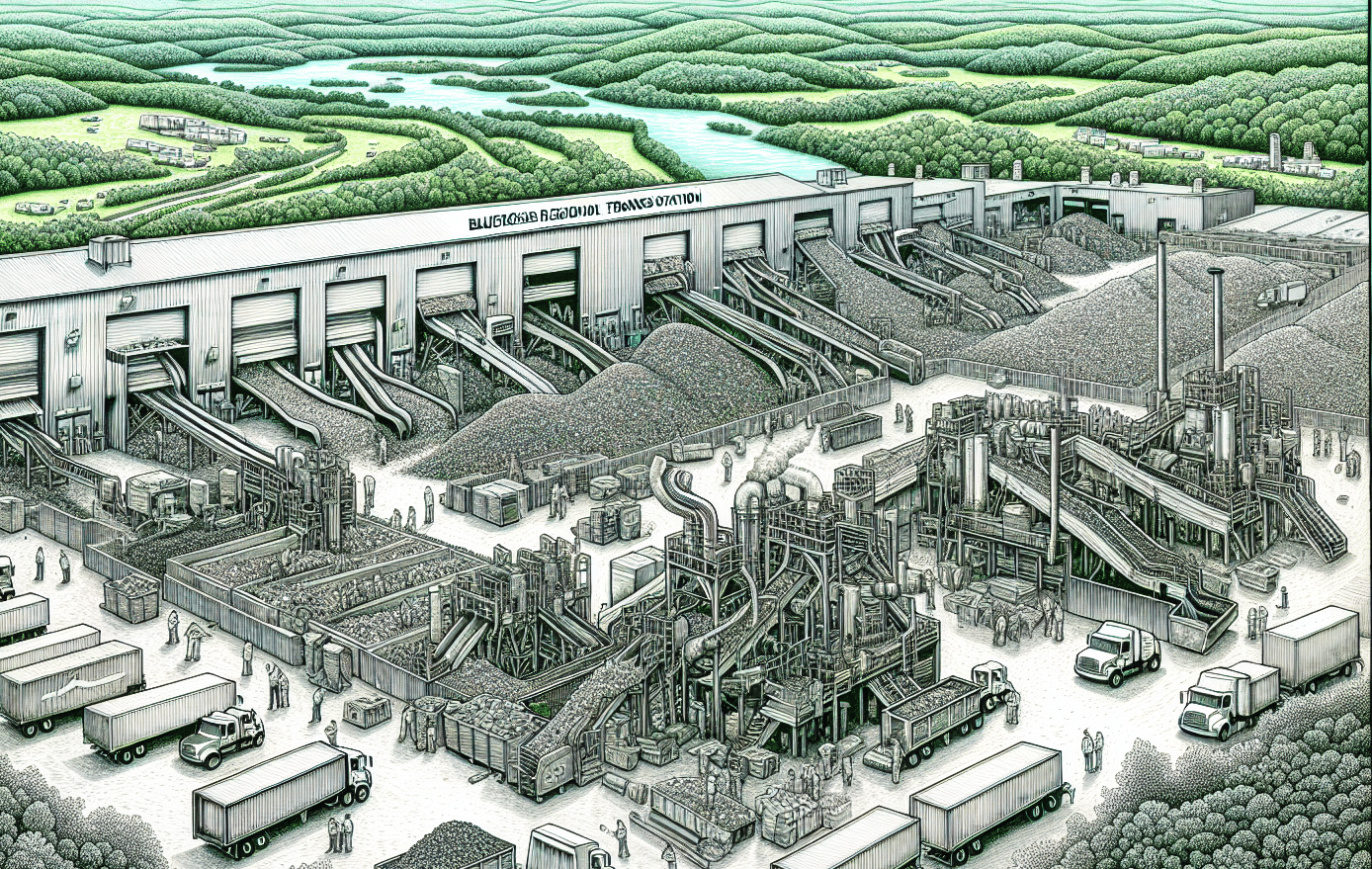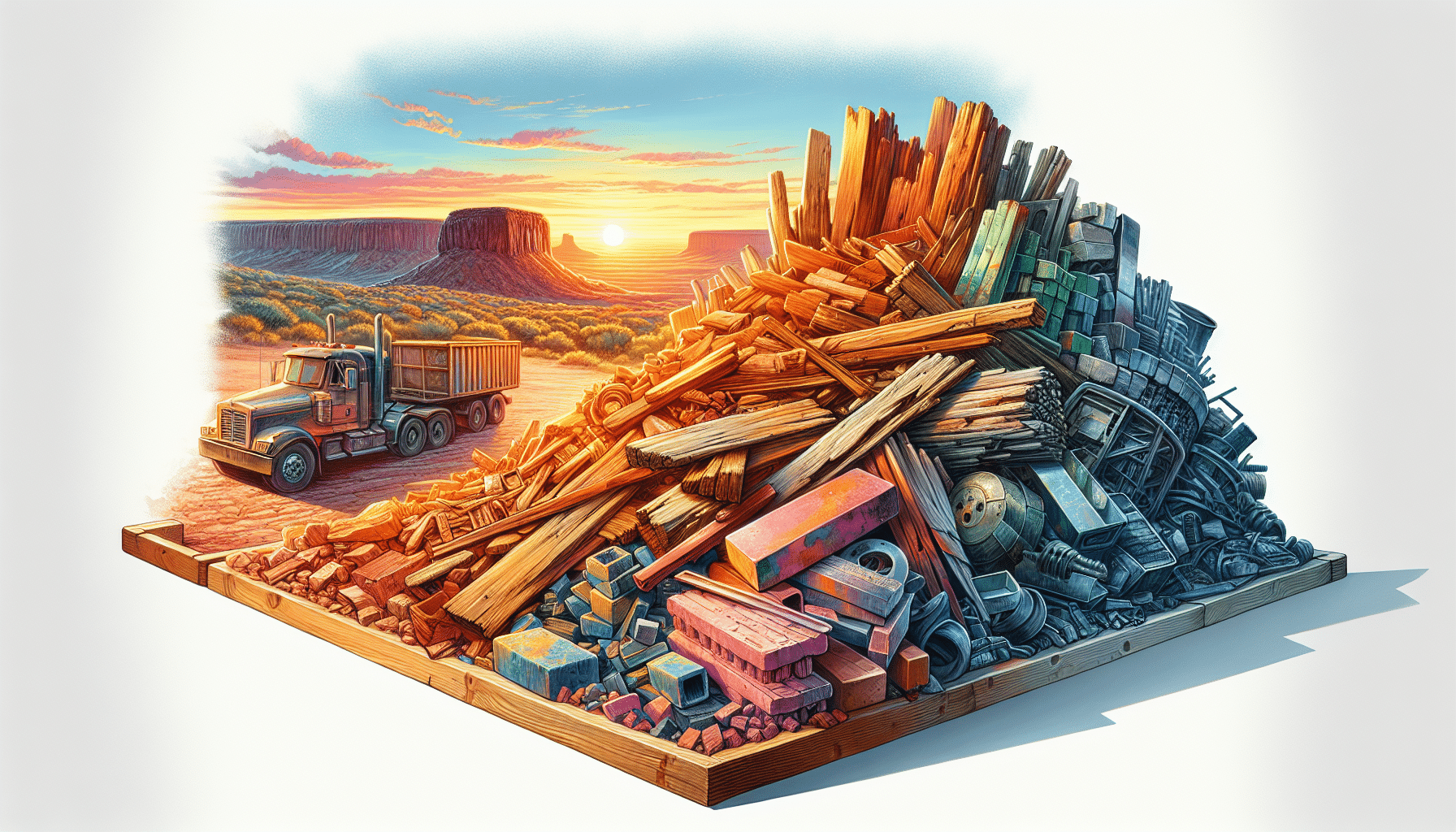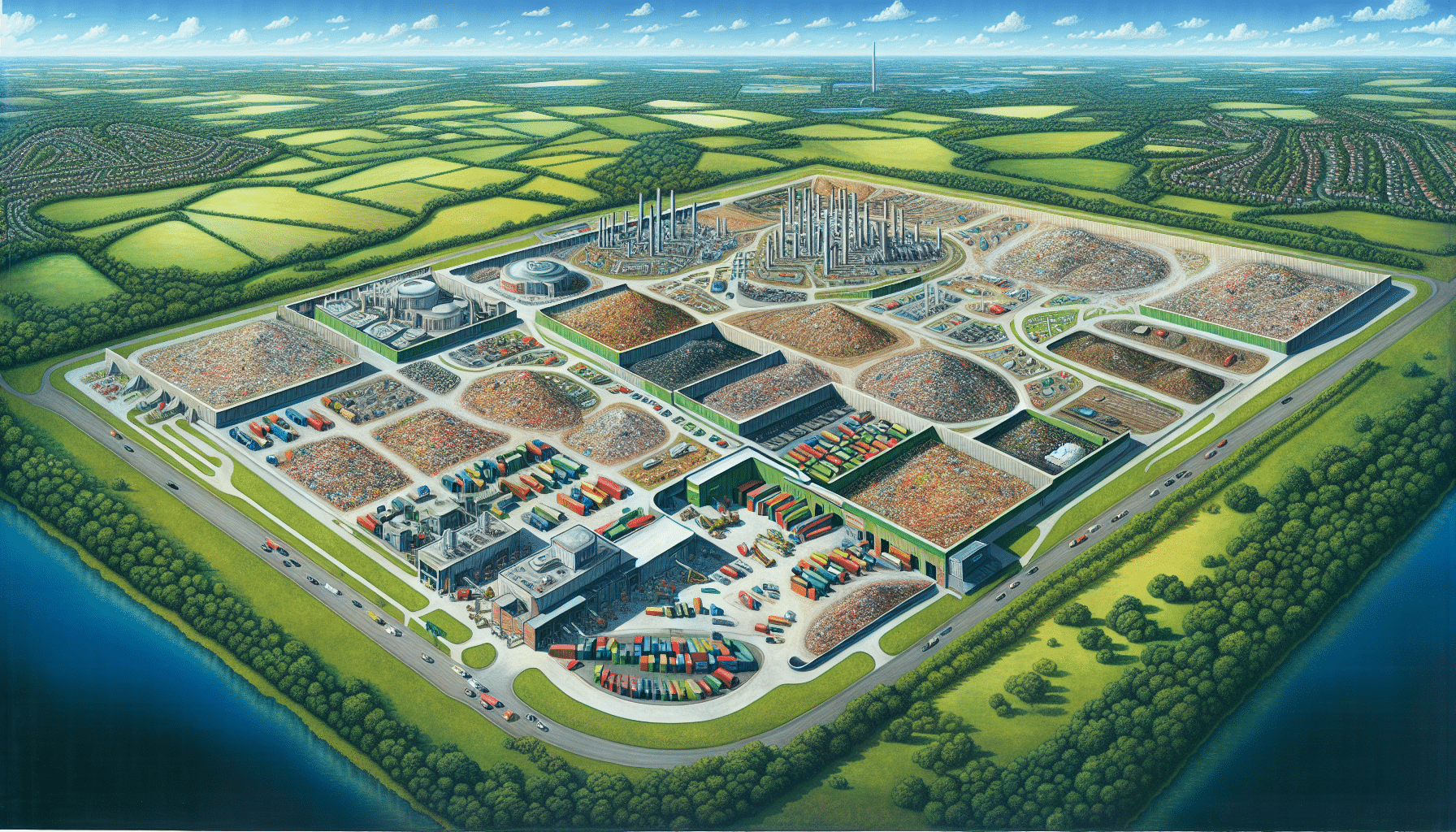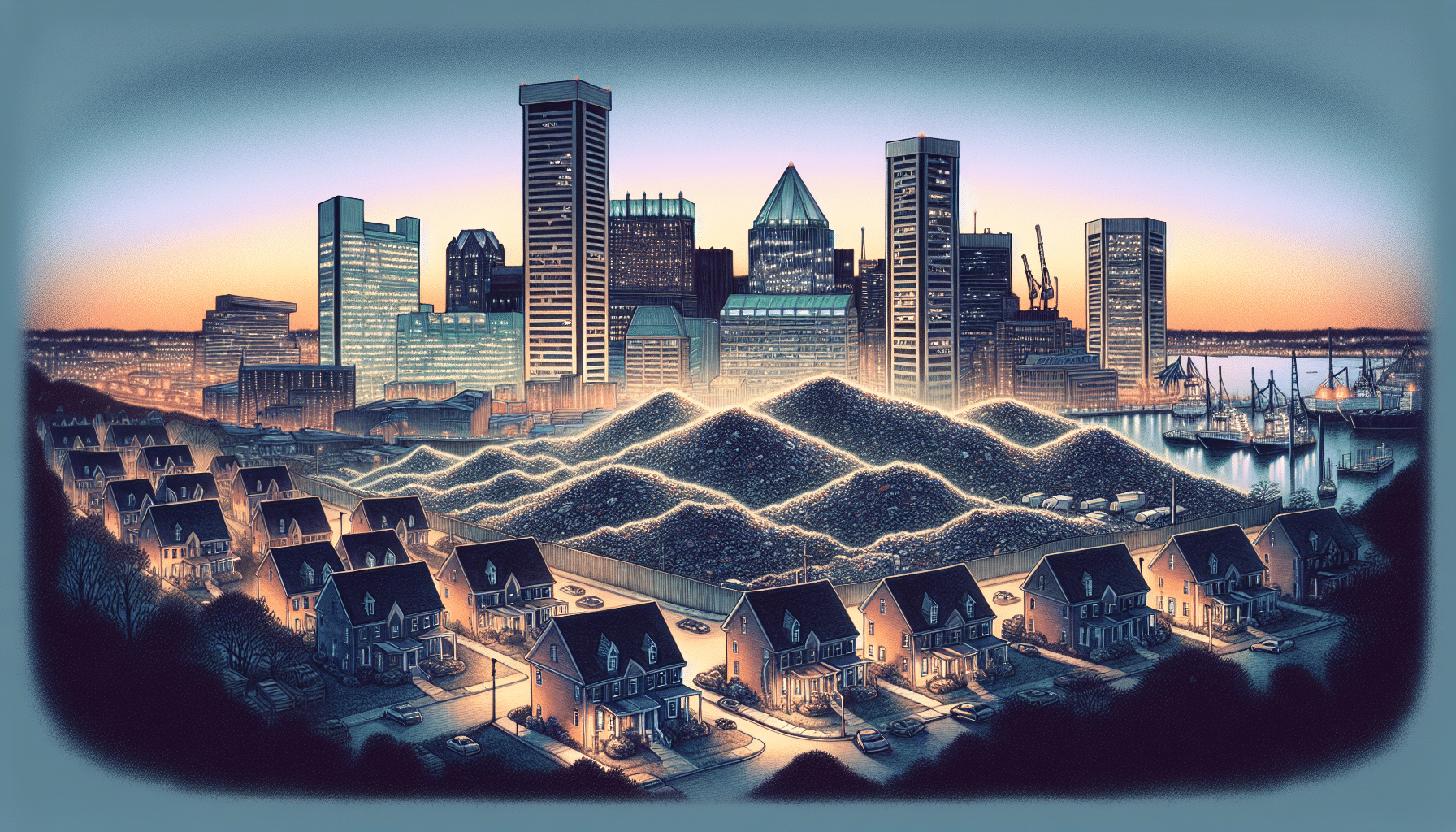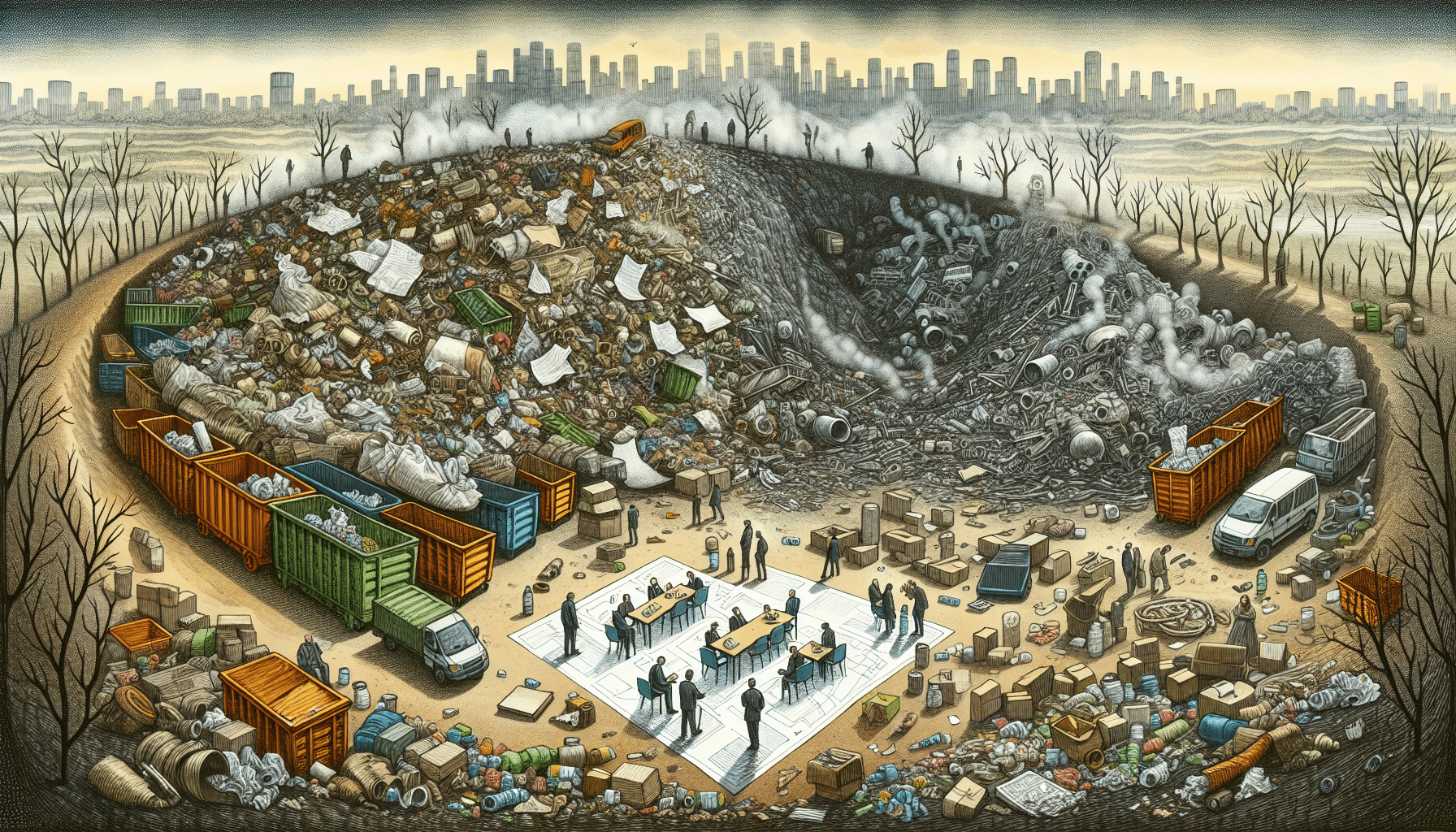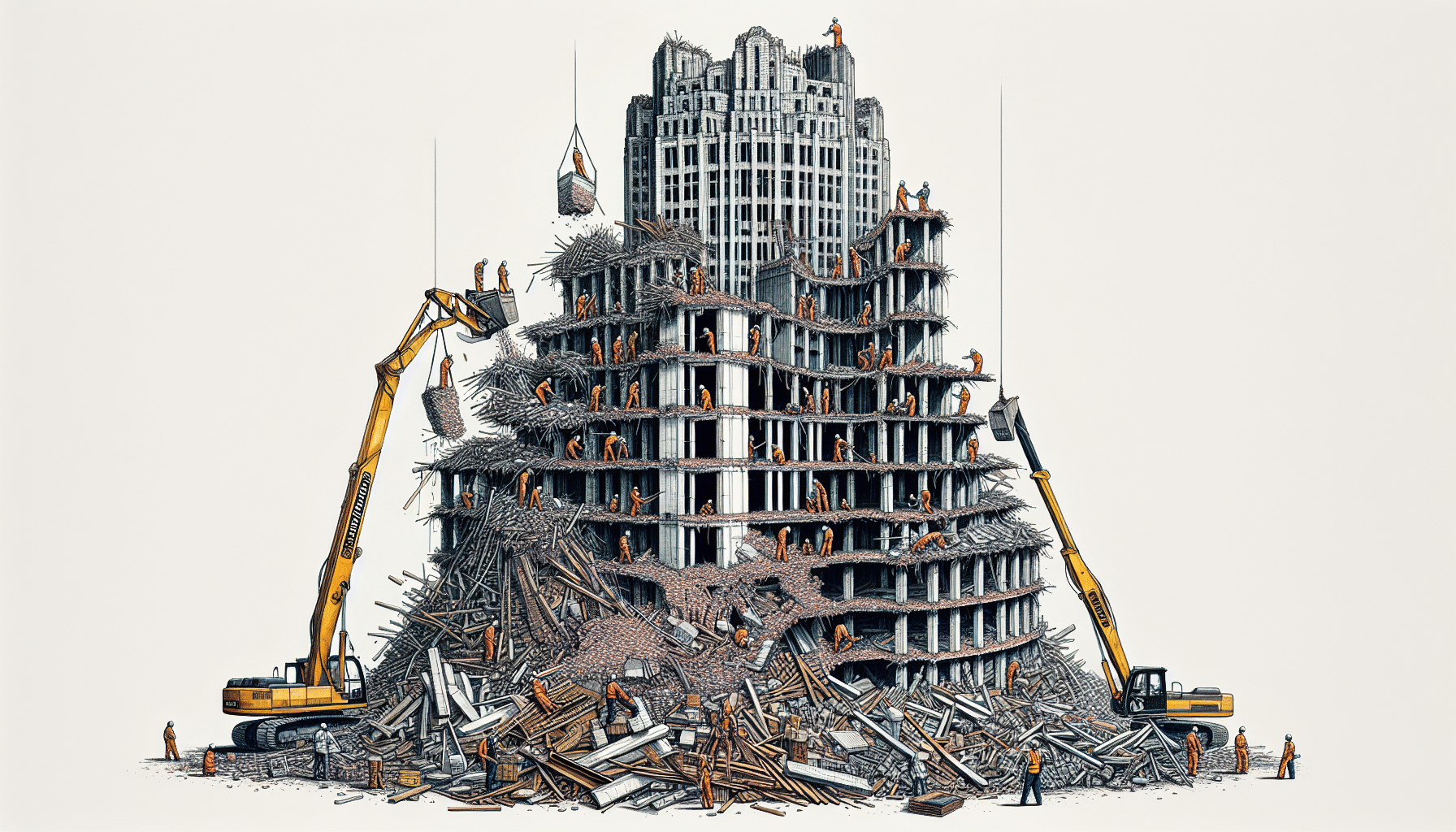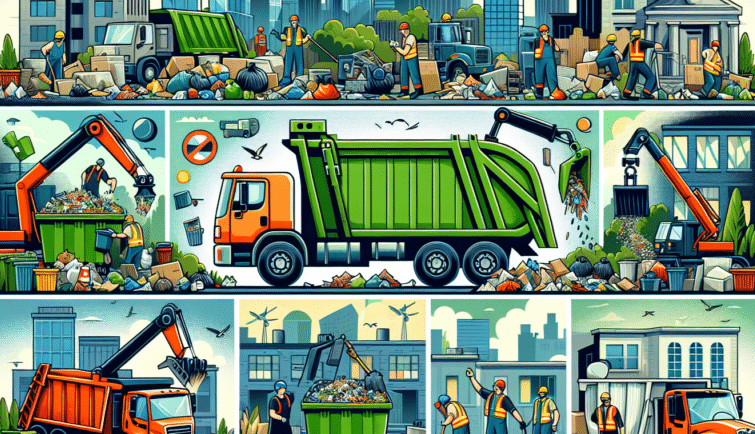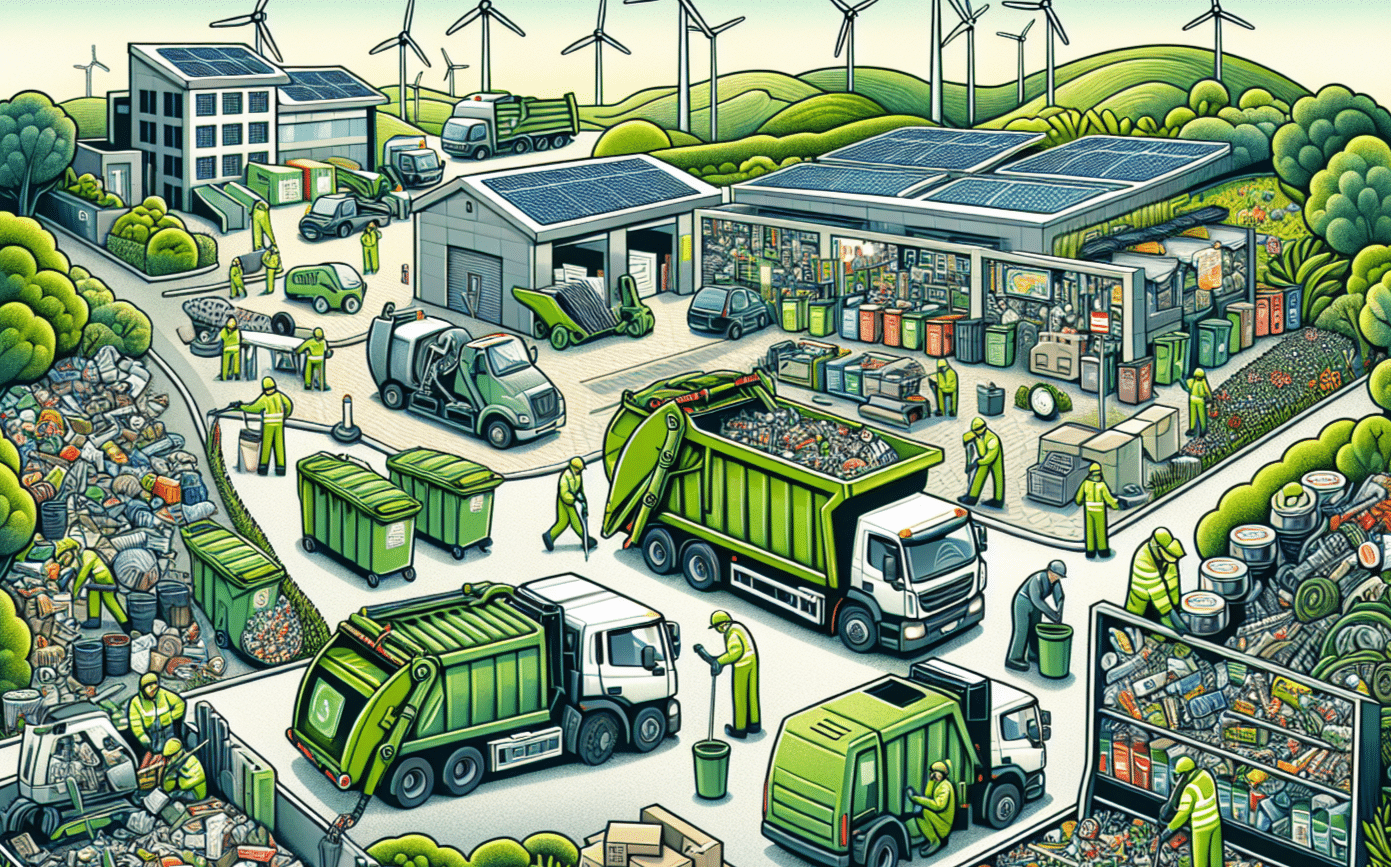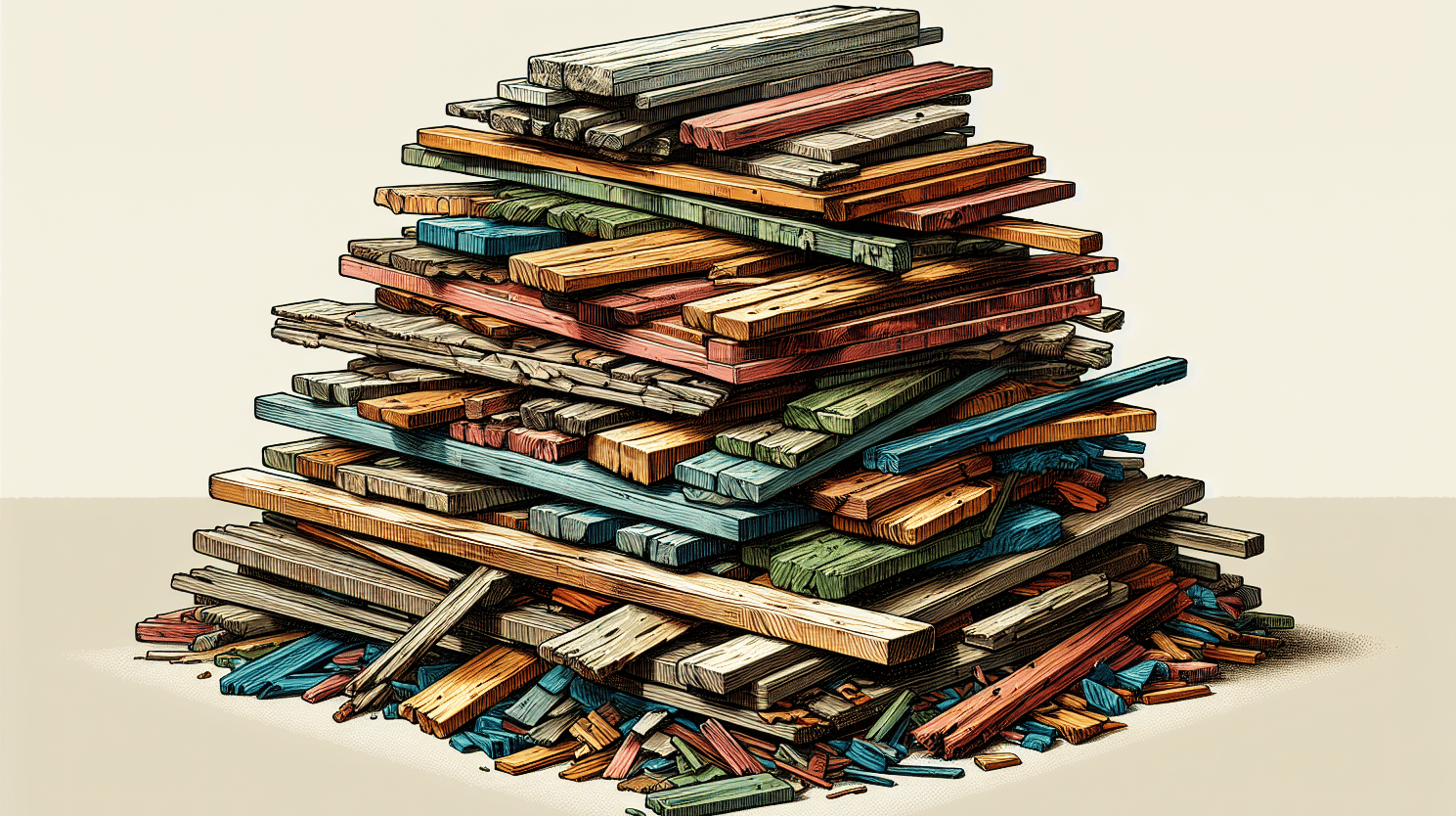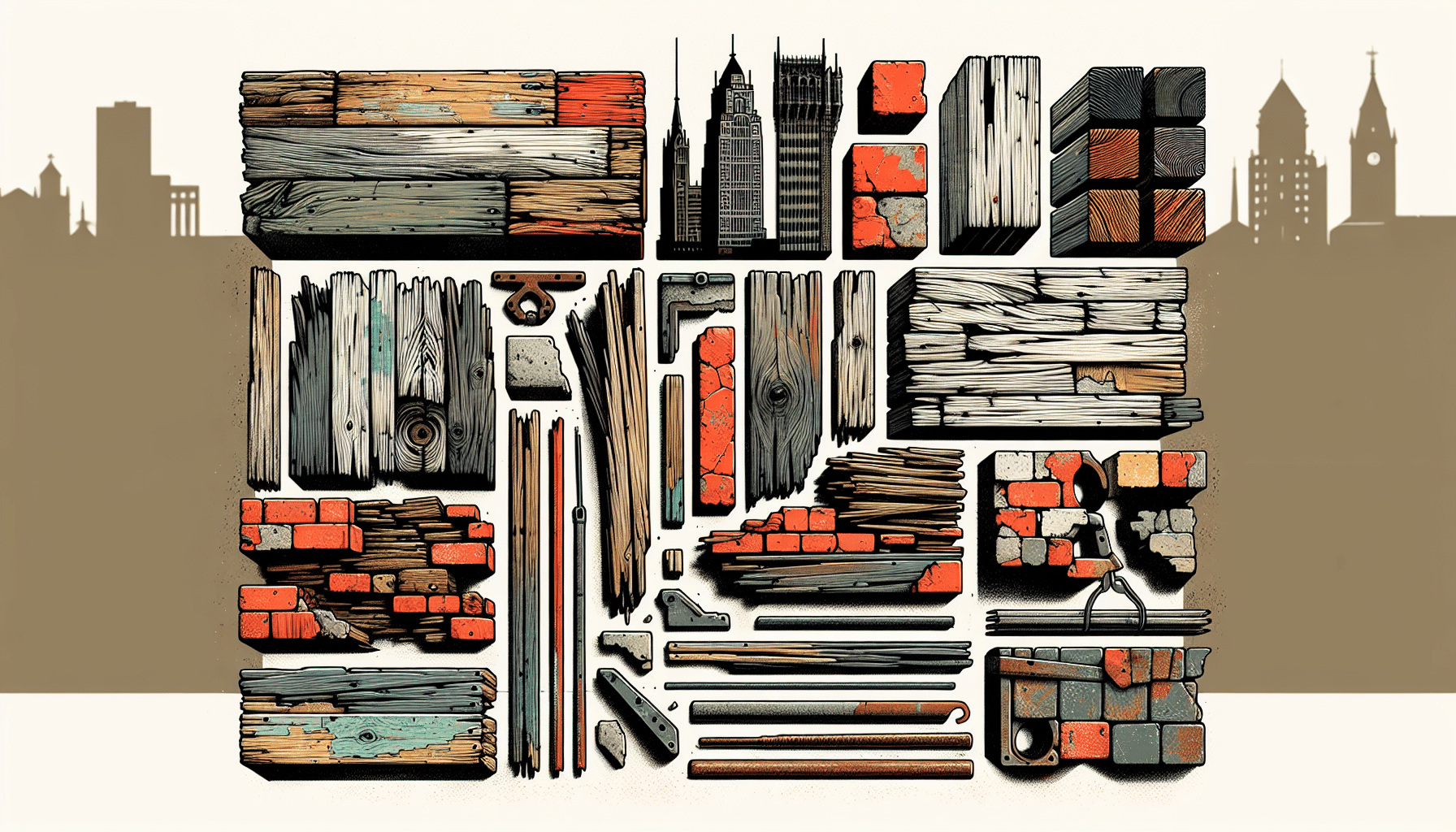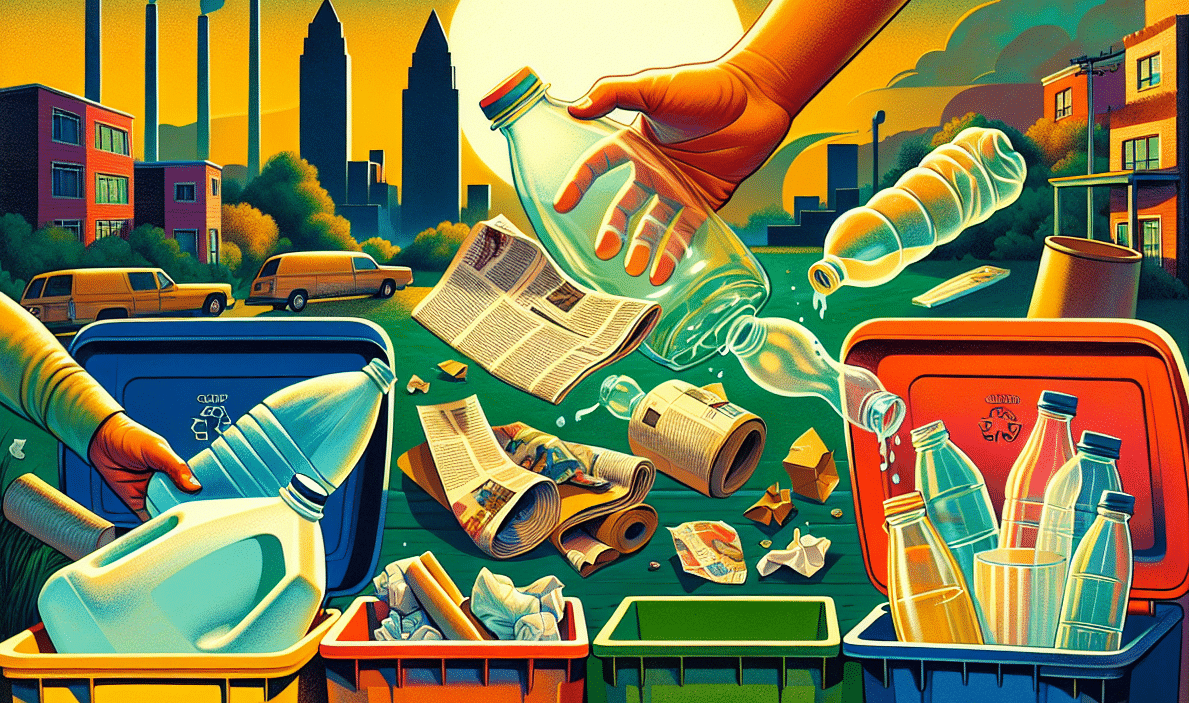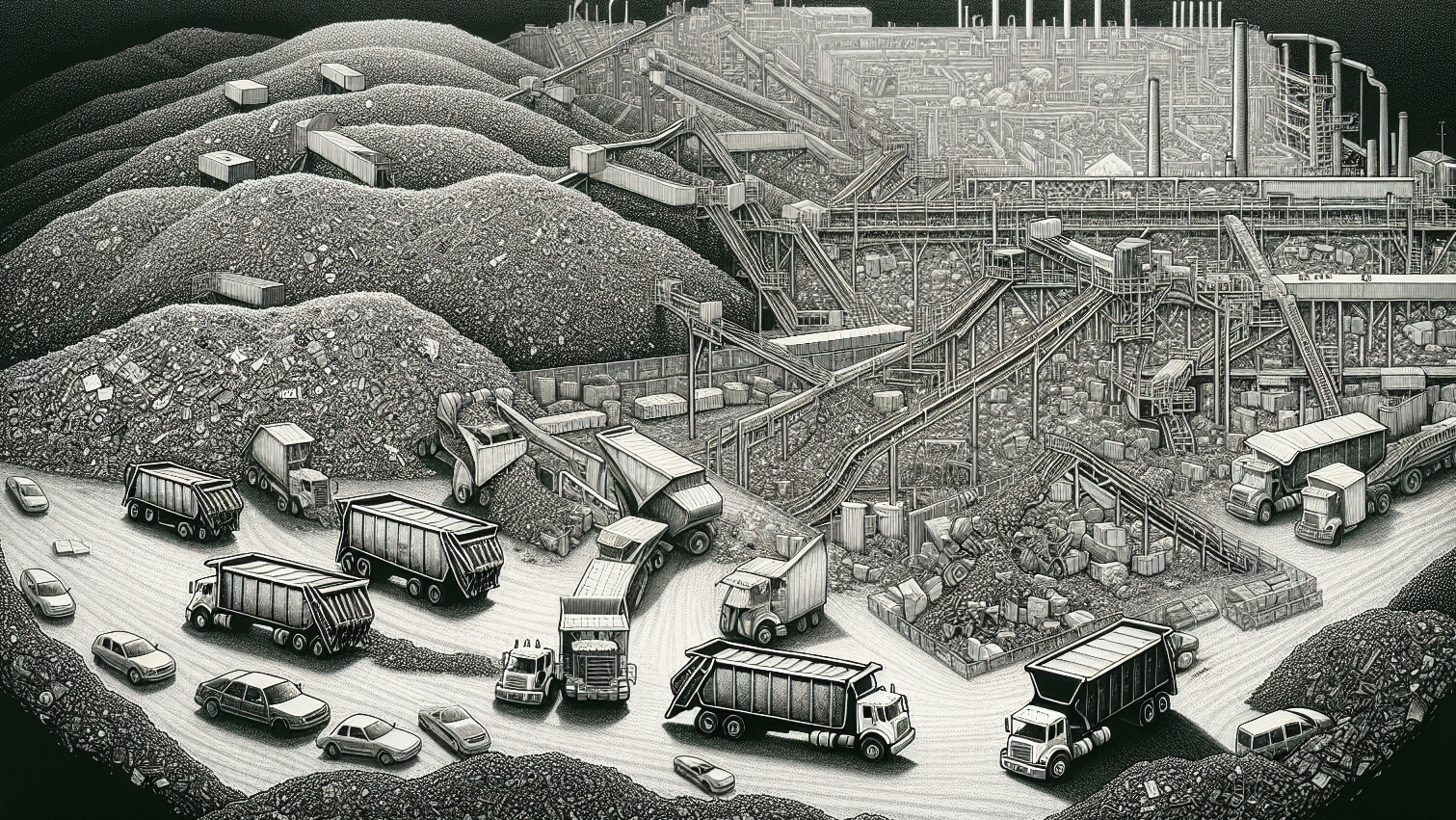Want to recycle in Dallas, TX? This guide covers everything you need to know about local recycling centers, accepted materials, and the city’s recycling programs.
Key Takeaways
- Dallas has over 100 24/7 recycling drop-off centers, promoting easy access for residents to recycle a wide range of materials.
- Specialized recycling services in Dallas cater to items like electronic waste, Styrofoam, and packing peanuts, ensuring responsible disposal and processing.
- Effective use of recycling bins and adherence to guidelines are essential to prevent contamination and ensure efficiency in Dallas’s recycling program.
Recycling Centers in Dallas, Texas
Dallas offers over 100 recycling drop-off locations, ensuring a recycling center is always within reach, approximately every 2.3 miles. These centers are accessible 24/7, allowing residents to drop off their recyclable materials at any time of the day or night. This extensive network of recycling centers plays a crucial role in managing waste and promoting sustainable practices in the city.
You can recycle various materials at these centers, including plastics, metals, glass, and mixed paper. The city’s recycling program is designed to accept these common household recyclables, making it as easy for residents to participate. Utilizing these facilities significantly reduces waste in landfills, contributing to a cleaner and greener Dallas.
These recycling centers are not just places to drop off waste; they are vital hubs for environmental conservation. By diverting waste from landfills, they help reduce greenhouse gas emissions and conserve natural resources.
If you have any recycling questions or need guidance on what materials are accepted, the staff at these centers are always ready to help. This community effort maintains a sustainable and healthy environment in Dallas, Texas.
Metal Recycling Services

Action Metals Recyclers has been a cornerstone of metal recycling in the Dallas-Fort Worth area since 1994, offering tailored recycling programs specifically designed for commercial clients. This facility accepts various ferrous and nonferrous metals, including steel, copper, brass, and aluminum. Their services are especially beneficial for businesses looking to manage scrap metal efficiently and in compliance with state and federal regulations.
One of Action Metals Recyclers’ standout features is its free pickup service for businesses with at least 10,000 pounds of scrap metal, ensuring that the recycling process is convenient and cost-effective. Unlike many competitors, they offer immediate payments for scrap metal in various forms, such as cash, check, or wire transfer, which helps businesses maintain cash flow. Their direct relationships with domestic foundries guarantee competitive pricing, making them a preferred choice for many local businesses.
Beyond the financial benefits, Action Metals Recyclers aims to build long-standing professional relationships with its customers, contributing to the overall profitability and sustainability of the businesses it serves. This commitment to customer service and environmental responsibility makes it a key player in the Dallas recycling community.
Paper and Cardboard Recycling
Paper and cardboard recycling is a cornerstone of waste reduction efforts in Dallas. Individuals can easily participate by flattening and placing small amounts of cardboard next to any indoor recycling bin for collection. This simple step can make a significant difference in reducing clutter and promoting recycling practices at home. For businesses, special pickups can be arranged for large amounts of cardboard, ensuring that commercial waste is managed efficiently.
The types of paper and cardboard accepted in Dallas recycling bins include newspapers, cardboard boxes, pizza boxes, and other paper products. However, it’s important to know specific restrictions to avoid contamination. For example, while pizza boxes are recyclable, they must be free of food residue. This attention to detail helps maintain the quality of recyclable materials and ensures they can be effectively processed.
Dallas offers a variety of paper recycling programs, including options for recycling newspapers and shredded paper. These initiatives are crucial for reducing waste and promoting sustainable practices throughout the city. By participating in these programs, residents and businesses alike can contribute to a more sustainable future for Dallas, significantly reducing the burden on local landfills.
Plastic Bag and Film Recycling
Plastic bags and films are commonly used items that can pose a significant challenge to recycling efforts if improperly handled. Fortunately, residents of Dallas can recycle these materials at designated drop-off containers, often found at local grocery stores. These stores typically have bins for collecting plastic bags and films, making it convenient for shoppers to dispose of their used grocery bags and other plastic films responsibly.
It’s important to note that plastic bags and films are not accepted in curbside recycling bins due to contamination issues. Plastic bags can cause significant operational problems when mixed with other recyclable materials at recycling facilities.
Returning them to designated drop-off locations ensures proper processing and recycling, reducing environmental impact and maintaining the recycling system.
Styrofoam and Packing Peanuts
Recycling Styrofoam in Dallas requires more effort, but it’s certainly doable. The city provides a 95-gallon bin for Styrofoam recycling, the same size as the municipal curbside recycling bins. However, to be accepted, Styrofoam must be clean and dry. This ensures that the material can be effectively processed without contamination. Residents can drop off their Styrofoam at designated centers for $10.00 per 95-gallon bin, making it a feasible option for those looking to dispose of large quantities.
Packing peanuts, however, are not accepted in these recycling bins. These materials can be challenging to recycle due to their small size and propensity to scatter. Instead, it’s recommended to reuse packing peanuts whenever possible or to check with local shipping stores, which often accept them for reuse.
By following these guidelines, residents can ensure that their Styrofoam and packing peanuts are managed responsibly, contributing to a cleaner environment.
Composting Programs
Composting is an excellent way to manage organic waste and enrich the soil. Common compostable materials include fruit and vegetable scraps, eggshells, yard trimmings, and shredded paper. These materials can be composted at home or through community composting programs, helping to reduce the amount of waste sent to landfills and improving soil quality for gardening and landscaping.
Dallas offers several composting options to suit different lifestyles:
- Vermicomposting, which uses worms to create compost, is a viable option for those with limited space and is particularly suitable for apartment dwellers.
- Bokashi composting allows the fermentation of organic waste using specific microorganisms, accommodating a wider range of food scraps without restrictions.
- Using either an open pile or a compost bin, backyard composting is ideal for those with more space and helps manage pests while simplifying access to finished compost.
In addition to individual efforts, Dallas also provides leaf recycling services, which allow residents to compost yard waste effectively. These services are part of the city’s broader recycling program to manage organic waste and promote sustainability. Participating in these programs allows residents to significantly reduce their environmental footprint and contribute to a healthier community.
Electronic Waste Recycling

Electronic waste, or e-waste, poses a significant challenge due to its hazardous components and the valuable materials it contains. In Dallas, several locations, such as Best Buy and Staples, offer services for recycling electronic waste, including computers, laptops, and laser printers. These services ensure that electronic devices are disposed of safely and responsibly, minimizing environmental impact and recovering valuable materials.
Specialized e-waste recycling services in Dallas are designed to handle various electronic items, ensuring they are properly processed and recycled. This is crucial for preventing harmful substances from entering the environment and reclaiming materials like gold, silver, and copper, which can be reused in new products. Responsible e-waste disposal helps protect the environment and supports the circular economy by keeping valuable resources in use.
By utilizing these e-waste recycling services, residents contribute to a cleaner and safer environment. Proper electronics disposal prevents contamination and reduces the strain on landfills, making it an essential practice for sustainability.
Specialized Recycling Services
Dallas offers specialized recycling programs for items not typically accepted in curbside bins. For example, newspaper sleeves and bubble wrap can be recycled through designated programs at specific locations. These materials often require different processing methods than standard recyclables, making specialized programs essential for proper handling.
Leaf recycling services are another valuable resource provided by the city. These services allow residents to compost organic waste, such as yard trimmings and leaves, contributing to reducing waste sent to landfills. These specialized services ensure that even less common recyclable materials are managed responsibly, further supporting Dallas’s sustainability efforts.
How to Use Recycling Bins Effectively

Effectively using recycling bins is crucial for maintaining the efficiency of Dallas’s recycling program. Recyclables should be mixed together in the community recycling containers, but plastic bags should be avoided, as they are considered contaminants. Instead, residents are encouraged to use old cardboard boxes or paper bags to transport their recyclables, which can be disposed of in the roll cart.
To prevent contamination and ensure safety, broken glass should be in a paper bag before being placed in the recycling bin. Contamination can cause significant operational issues at recycling facilities, so adhering to these guidelines helps keep the recycling system running smoothly.
Following these best practices maximizes the effectiveness of recycling efforts and contributes to a more efficient program.
Recycling Collection Services
Dallas offers various recycling collection services tailored to the needs of different commercial entities. Hotels, restaurants, and other businesses can apply for specialized recycling services and support. The city’s Multifamily Recycling Ordinance requires multi-family properties with eight or more units to have recycling services, ensuring that residents can participate in the recycling program.
For larger projects, such as construction cleanouts, roll-off dumpsters, ranging from 20 to 40 yards, are available for rent. These temporary dumpster rentals provide flexibility and convenience for residents and businesses, making managing large amounts of waste easier. Additionally, Frontier Waste Solutions offers various dumpster sizes, including front-loading bins and compactors, tailored to the needs of different businesses.
These collection services ensure that recyclable materials are handled efficiently and responsibly. These services support the city’s overall recycling efforts and reduce waste sent to landfills.
Safety and Environmental Impact
Safety is a top priority at recycling facilities in Dallas. Strict protocols protect employees from potential hazards associated with handling materials. Regular training on equipment handling and emergency response procedures ensures that staff are well-prepared to manage any situation safely. These measures maintain a safe working environment and prevent accidents.
Contamination in recycling bins poses significant risks, not only to the equipment but also to the safety of employees. Proper recycling practices are crucial for minimizing these risks and ensuring the smooth operation of recycling facilities. Following the guidelines provided by the city and recycling centers helps prevent contamination and supports a safe recycling process.
The environmental impact of recycling cannot be overstated. Recycling diverts waste from landfills, reduces greenhouse gas emissions, and conserves natural resources. This contributes to overall sustainability and a healthier future for our community. Every effort made by residents and businesses to participate in recycling programs plays a vital role in protecting our environment and supporting a sustainable future.
Summary
In conclusion, effective recycling in Dallas, Texas, involves understanding the various services and facilities available, from metal recycling to specialized programs for items like plastic bags and Styrofoam. By utilizing these resources, residents can significantly reduce their environmental footprint and contribute to a cleaner, more sustainable community.
We encourage everyone to take advantage of the recycling programs offered in Dallas, follow best practices for using recycling bins, and participate in composting and e-waste recycling. Together, we can positively impact our environment and ensure a healthier future for generations to come.
Frequently Asked Questions
Where can I recycle plastic bags in Dallas?
You can recycle plastic bags at designated drop-off containers available at various grocery stores in Dallas. Always check with your local store for specific recycling options.
What types of metals are accepted at Action Metals Recyclers?
Action Metals Recyclers accepts various metals, such as steel, copper, brass, and aluminum. This is a great opportunity to recycle these materials responsibly.
How can I start composting at home?
To start composting at home, choose either an open pile or a compost bin; for limited space, consider vermicomposting or Bokashi composting. This will help you effectively recycle organic waste and promote a healthier environment.
What should I do with electronic waste?
To responsibly manage electronic waste, recycle it at designated locations like Best Buy or Staples, which accept computers and laptops for proper disposal.
How can I avoid contamination in my recycling bin?
To avoid contamination in your recycling bin, refrain from using plastic bags and ensure all materials are clean and dry. Always adhere to your city’s recycling guidelines for proper disposal.






























